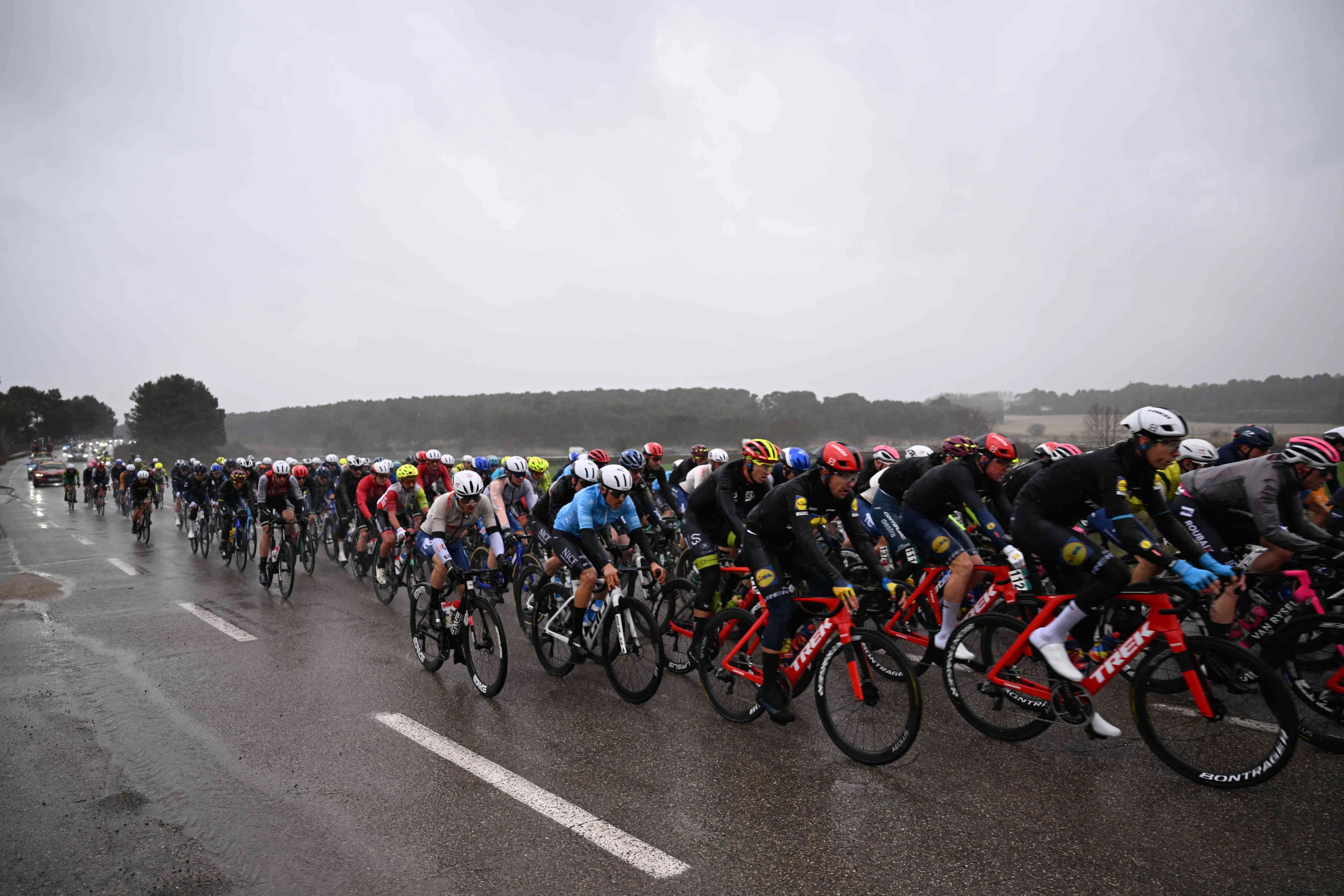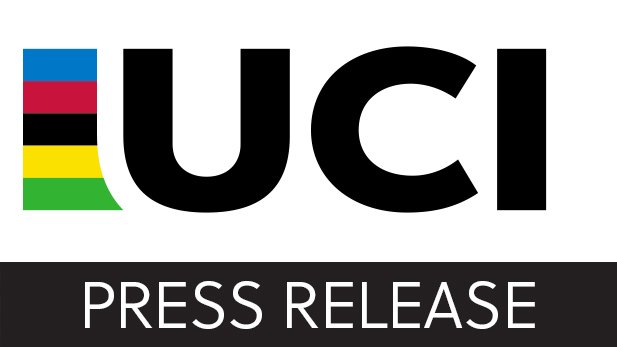UCI announce rule changes in bid to improve rider safety including trial of yellow card system
CyclingThursday, 13 June 2024 at 09:20

Rider safety is a hot topic in the world of cycling at the moment after a raft of big name riders saw their Tour de France hopes at risk or even completely dashed by crashes in the last few months. As a result, the UCI have announced some rule changes.
In an announcement on the official UCI website, it is revealed what the changes entail. "The main measures are as follows: introduction of a yellow card system, restriction on wearing and using earpieces in races, modification of the so-called ‘three-kilometre’ (or ‘sprint zone’) rule, simplification of the method for calculating time gaps in stages with a bunch sprint finish," explains the statement. "All these changes will be subject to test periods, at upcoming races and until the end of the season, in collaboration with stakeholders, before being finalised and implemented."
Read also
Most eye catching there, is an introduction of a yellow card system. How exactly would this work out on the roads? "A system of “yellow cards” will be introduced from 1st August 2024 (trial phase until 31 December 2024) at men's and women's professional road races. These yellow cards will represent a sanction but will not physically exist. They will, however, be listed in the race communiqué published after the finish," the UCI explain. "This initiative will have a dissuasive effect on anyone present in the race convoy (riders, Sport Directors, other drivers and motorbike riders, etc.) who might engage in behaviour that could jeopardise the safety of the event. In addition, the system will aim to make all these people more responsible by introducing the monitoring of bad conduct over time and consequently encouraging respectful behaviour."
"Race Commissaires will therefore be able to issue these yellow cards for any offence likely to pose a risk to the safety of the competition. The 21 race incidents concerned are listed in article 2.12.007 of the UCI Regulations. It will be possible to impose yellow cards either in addition to other sanctions set out in the table of race incidents, or as a stand-alone sanction," the explanation continues. "It is important to note that the table of race incidents already provides for the possibility to disqualify a rider (termed a red card in other sports). This possibility is not affected by the introduction of the yellow card system."
Read also
During this trial phase however, it won't completely as would be seen in reality. "The period from 1st August to 31 December 2024 will serve as a test period during which no additional penalties related to yellow cards will be imposed: indeed, yellow cards may already be used in UCI WorldTour and UCI Women's WorldTour events, but no disqualifications or suspensions for accumulating yellow cards will be handed out during this period," the UCI say. "From 1st January 2025, however, sanctions will be imposed for the accumulation of yellow cards."
So what of the punishments? "During the same race, anyone who receives two yellow cards will be disqualified from that race and suspended for 7 days, starting on the day following receipt of the second yellow card; anyone who receives three yellow cards within a thirty-day period will be suspended for 14 days, starting on the day following receipt of the third yellow card; anyone who receives six yellow cards within a one-year period shall be suspended for 30 days, starting on the day following receipt of the sixth yellow card; a yellow card that has been taken into account for the imposition of a period of ineligibility shall no longer be taken into account in the future."
“The safety of riders is a priority for the UCI, and it was with this in mind that we created SafeR, a structure dedicated to safety, bringing together the main stakeholders in professional road cycling," adds UCI President David Lappartient. "I am convinced that the measures announced today, which are the fruit of the work of this new body and which affect many aspects of the road racing ecosystem, will enable us to make progress towards a safer sport.”
Tour de France boss Christian Prudhomme also shares his opinion. “SafeR demonstrates that all the cycling families can work together to improve safety, which is fundamental to the future of our sport. One of the major missions of road race organisers is securing the public spaces we require for our champions to express themselves. These latest initiatives show that our regulations can evolve as our sport continues to develop and face new challenges. With certain measures already being introduced for the Tour de France, this is proof of the collaboration to improve safety within the cycling families.”
Read also
claps 1visitors 1
Just in
Popular news
Latest comments
- Slowly slowly the youngsters are making more and more of an impact.Mistermaumau18-02-2026
- I agree for certain situations, especially camps and popular training destinations but teams can’t manage or afford to chaperone all their riders all the time. Off season they still have to train and want to be home as much as they can (this is also where they are easiest to « catch »). On the other hand, if riders like Tadej accept « invitations » to ride on certain roads just for promotional purposes like in Gran Canaria they are also responsible for any trouble it attracts, you can’t expect people to stay away once you deliberately notify where you’re going to be and when. SeemsMistermaumau18-02-2026
- Please, no. Enough loonies out and about, safer indoors spouting out online.Mistermaumau18-02-2026
- Coach is smart to get out before Yates' doping hits the press
 Front24218-02-2026
Front24218-02-2026 - You need to get out moreJezla18-02-2026
- Ego and self regard are at the center of most human folly.TheOlderIGetTheFasterIWas18-02-2026
- You can't win 'em all. These early season races at this level are good because it shows where you are weak and need work.awp18-02-2026
- This is what I wrote 12-02-2026 10:00: "As far as I'm convinced, Remco still has "zero" wins. I invite Remco to stop in Siena to meet his Slovenian master, Pogi the G.O.A.T... but no, it's better to run away and hide. His fans will somehow defend and glorify him. Let me repeat, he still has zero wins in 2026. If someone doesn't have a high enough IQ to understand what I'm talking about, it's because they don't recognize the low ranking F category races. If Remco will beat Del Toro and Adam Yates in the UAE Tour, then I will consider this to be his first win in 2026. Ad acta." PS: Remco still has zero wins. His second and third class races don't count. The first real race comes along and Mustafa Remco fails.Mou-Cro-HR18-02-2026
- This is what I wrote 12-02-2026 10:00: "As far as I'm convinced, Remco still has "zero" wins. I invite Remco to stop in Siena to meet his Slovenian master, Pogi the G.O.A.T... but no, it's better to run away and hide. His fans will somehow defend and glorify him. Let me repeat, he still has zero wins in 2026. If someone doesn't have a high enough IQ to understand what I'm talking about, it's because they don't recognize the low ranking F category races. If Remco will beat Del Toro and Adam Yates in the UAE Tour, then I will consider this to be his first win in 2026. Ad acta." PS: Remco still has zero wins. His second and third class races don't count. The first real race comes along and Mustafa fails.Mou-Cro-HR18-02-2026
- OK, let's stop with the BS. Remco Mustafa didn't have any cramps, 100%. The only truth is, Remco is not the great cyclist that the Belgians and his fans want us to think. Ad acta!!!... Once in the fall of 2025 I said that Remco's chances of following Pogi are equal to my chances, there is no difference. The only difference is that I'm in front of a TV and Mustafa is acting and making excuses live in front of an audience of millions. Ayuso and Remco are the biggest liars in the peleton.Mou-Cro-HR18-02-2026
Loading
The UCI introduces new measures to promote safety at road races bit.ly/3KIb2XE
2 Comments









